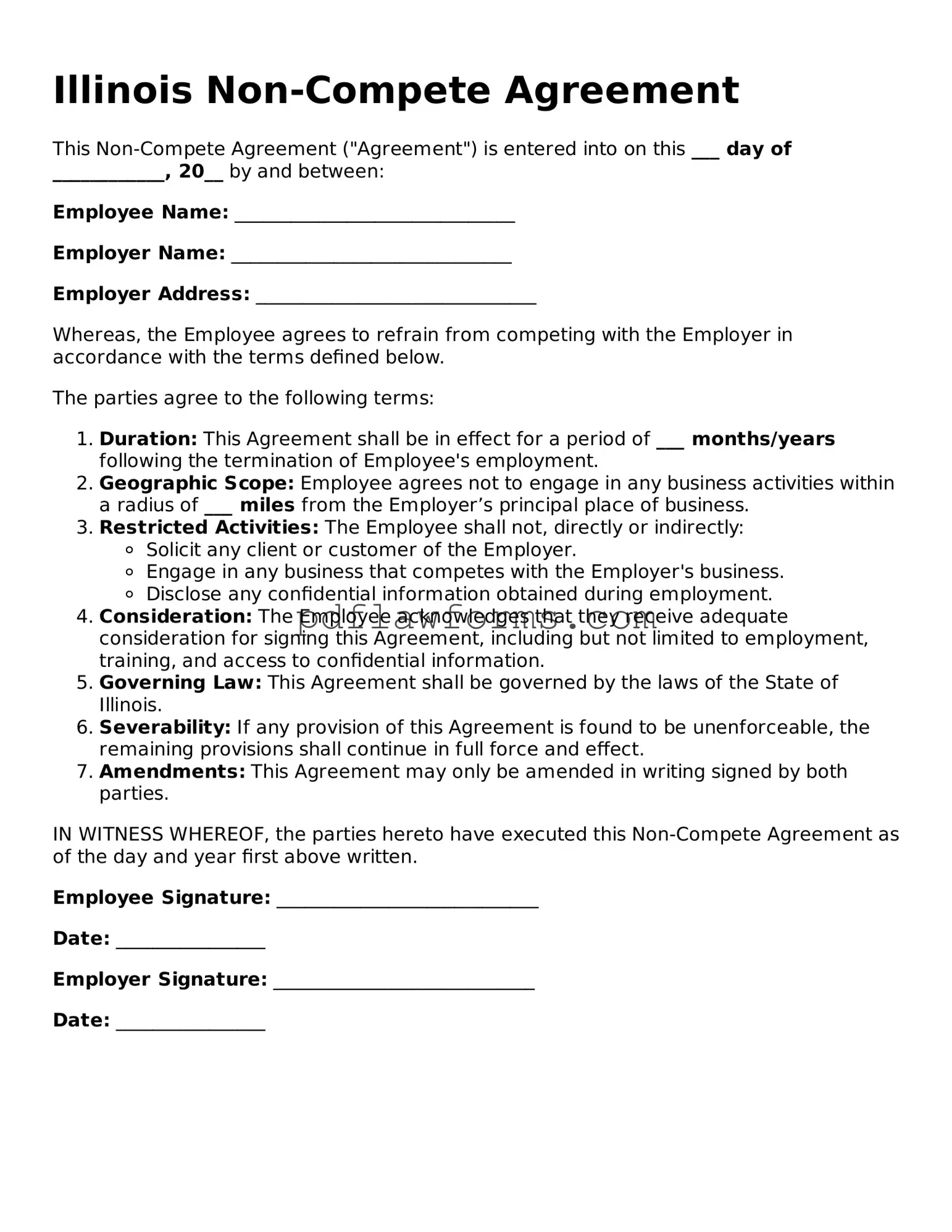Non-compete Agreement Form for the State of Illinois
A Non-compete Agreement in Illinois is a legal document that restricts an employee's ability to work for competitors or start a similar business within a specified timeframe and geographic area after leaving their current employer. This form is essential for protecting a company's trade secrets and competitive edge. To ensure compliance and clarity, consider filling out the Non-compete Agreement form by clicking the button below.
Make My Document Online

Non-compete Agreement Form for the State of Illinois
Make My Document Online
You’re halfway through — finish the form
Edit and complete Non-compete Agreement online, then download your file.
Make My Document Online
or
⇩ Non-compete Agreement PDF
